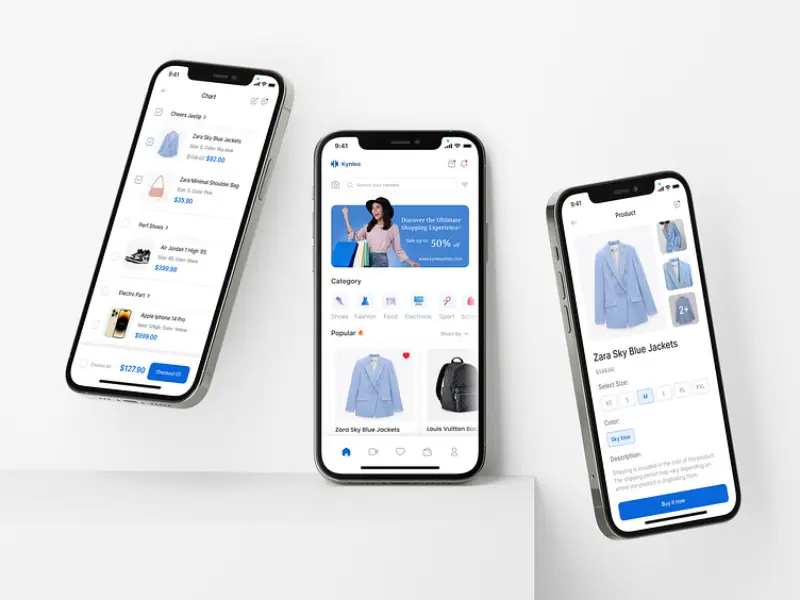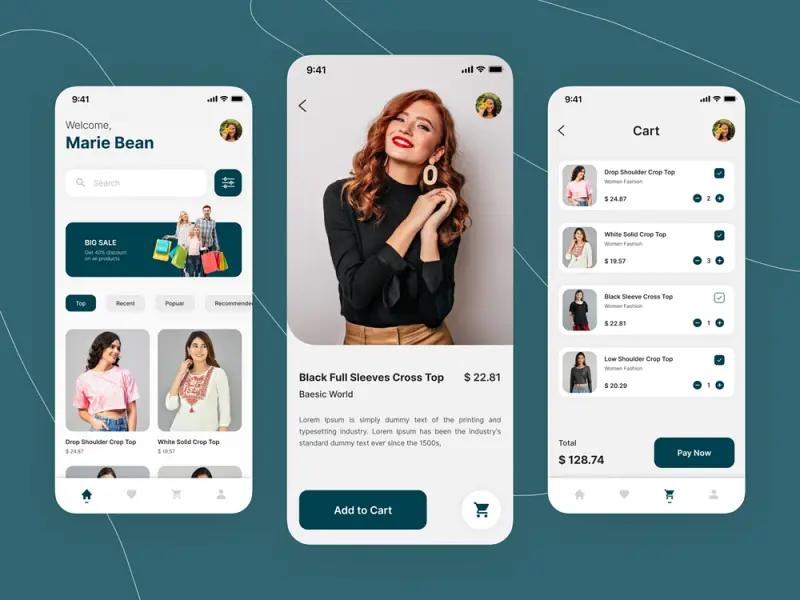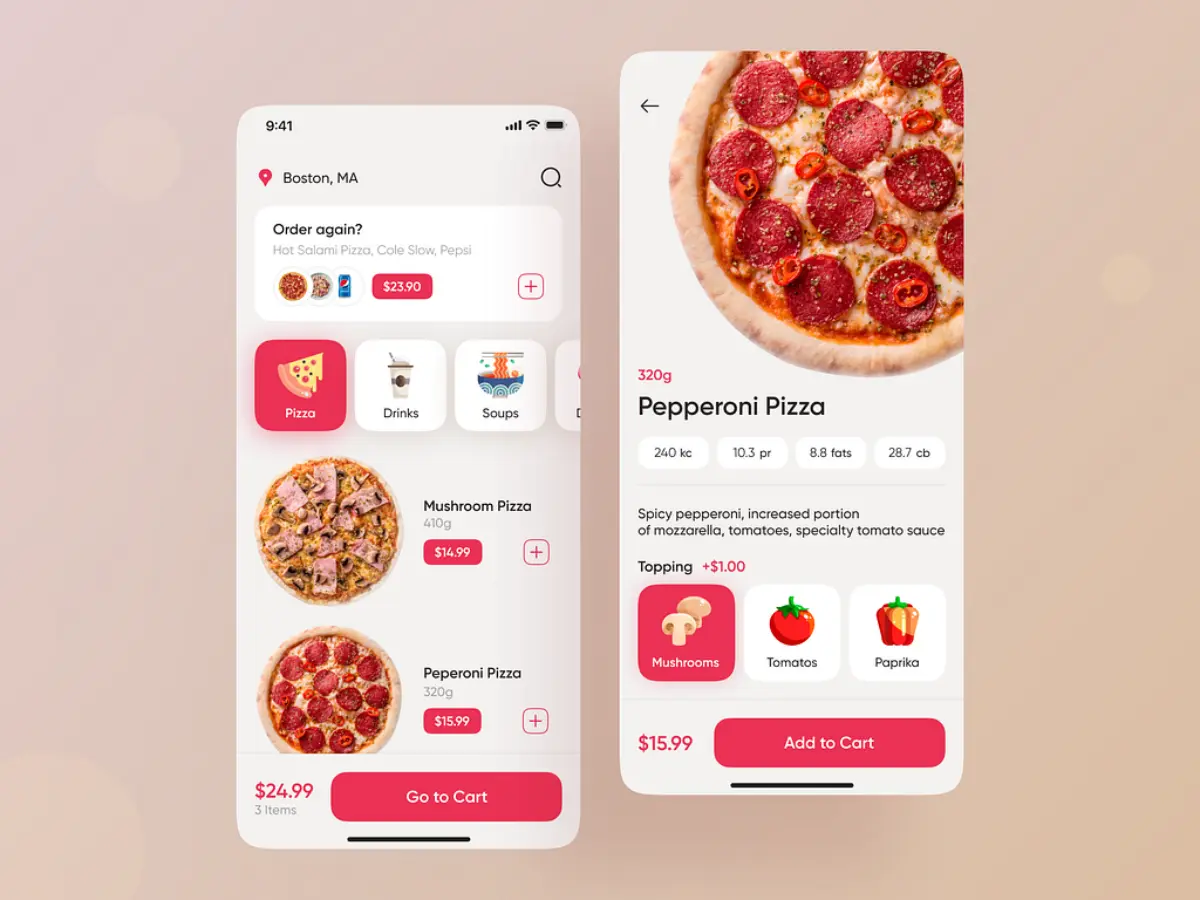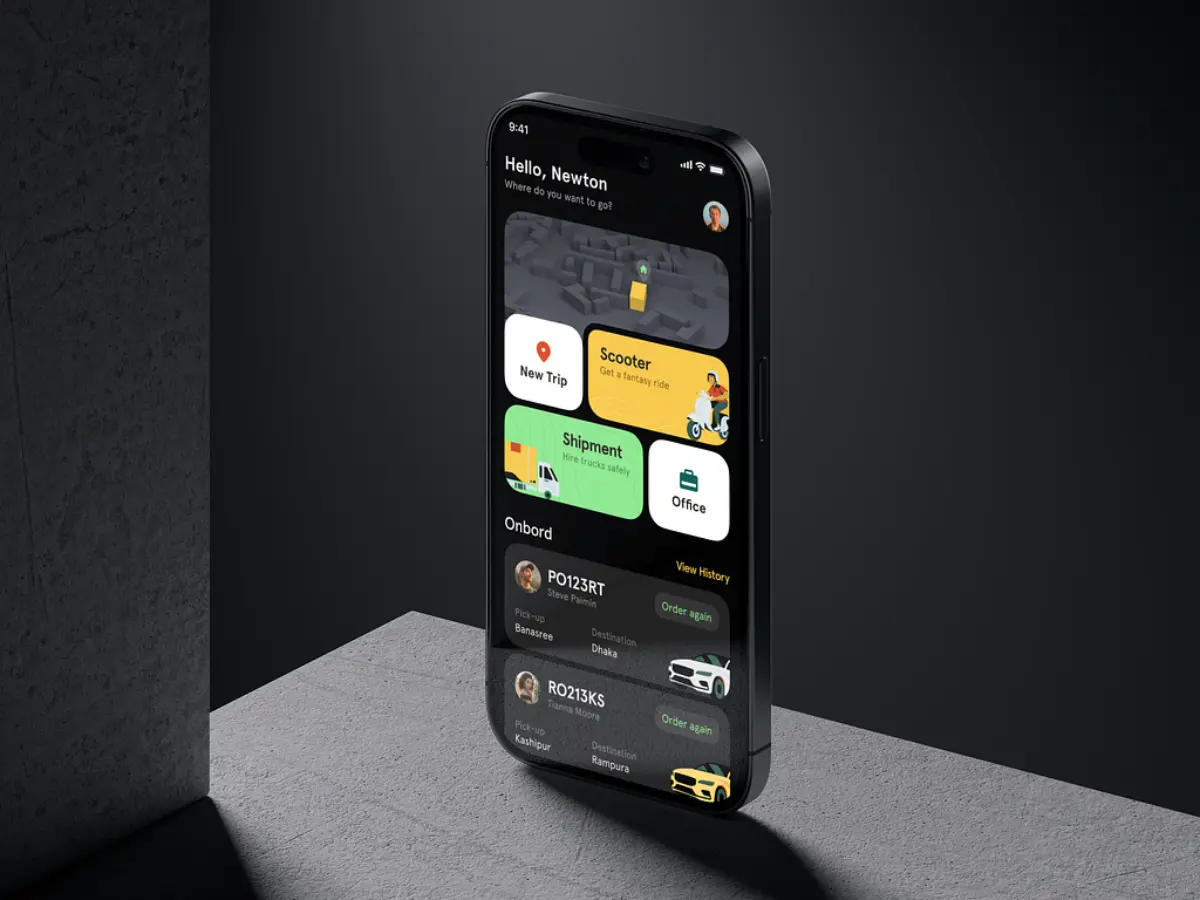Custom Retail Software Development – Guide to Business Success
- TECHVIFY Team
- 0 Comments
The retail industry has grown increasingly competitive and fast-paced due to the advent of innovative retail technologies. These advancements have undeniably heightened the demand for efficiency. Custom retail software solutions can play a pivotal role in automating most routine in-store operations effectively and efficiently.
The retail management software market is expected to grow at a CAGR of 8.6%, reaching $7.9 billion by 2027. This growth is propelled by retailers’ need for automated operations, customer-centric solutions, and advanced retail analytics.
If you’re considering to have custom retail software development, you’re in the right place. This post will explain custom retail software and how to develop it. Let’s start with a brief introduction to custom-built software specifically designed for the retail industry.
I. The Difference When Choosing Custom Retail Software Solutions
Certain statistics indicate that technological advancements have significantly changed customer buying behavior. You can enhance customer retention by adopting custom retail software that assists your customers and manages your products. Consider these stats:
- After three late or incomplete deliveries, 78% of buyers do not use the same retailer again.
- 30% of customers leave within two minutes if they can’t find the item they need in stock.
- 87% of shoppers tend to leave the store if there is no assistant nearby.
Implementing retail software that offers assistance and guidance can assist you in maintaining and expanding your customer base through improved customer interactions.
Custom Retail Software Solution
II. Benefits of Using a Custom Retail Software Solution for Your Business
Automation
With a retail outlet automation system, you can streamline in-store tasks such as inventory auditing, billing, reporting, payroll records, pricing regulations, and return processing.
Improved Customer Service
Automating most store processes allows your employees to focus more on assisting customers. Additionally, embedded analytics can create personalized recommendations for customers.
Real-Time Visibility
Retail software solutions provide real-time control of warehouses and shop floors. This helps you understand your needs, enabling full control and visibility over your inventory at all times.
Supply Chain Management
A retail chain management system helps you execute tasks like supply chain transactions, manage supplier relationships, and control other associated business processes.
Financial Management
The software assists in managing your finances and suggests cost-effective methods based on data. For example, AI-powered software can evaluate your financial conditions and recommend cost-saving strategies.
Streamlining Marketing Campaigns
Retail management software offers actionable analytics to devise effective marketing strategies. A well-planned marketing strategy can increase sales and grow your customer base. Moreover, these software solutions come in various types to suit your specific needs.
More Retail and eCommerce Industry-related Insights:
III. Types of Custom Retail Software Solutions
The main types of custom retail software are:
1. Point of Sales (PoS)
Software PoS software is used on hardware like computers, tablets, cash registers, and barcode scanners to handle sales transactions on-site. There are several types, including:
- Self-Service Kiosks: Common in restaurants, these allow customers to order and pay without cashier assistance.
- Desktop PoS Systems: Installed on computers in physical stores.
- Mobile PoS Solutions: Used for transactions on the go, often by courier services.
2. Inventory Management Software
This software helps control warehouse stocks and automates related processes, including:
- Automatic Synchronization: Updates inventory in real-time by syncing orders with stock.
- Automatic Report Generation: Provides insights for better sales planning.
- Efficient Invoicing: Simplifies price formation and revenue transparency.
Using inventory management software can significantly ease the management of retail chain stores or individual retail shop inventories.
3. Retail ERP Systems
ERP, which stands for ‘Enterprise Resource Planning,’ refers to systems that integrate various business software into a single platform. Key features include:
- Product Management: Categorizes and manages products, including tracking expiry dates.
- Supply Chain Management: Balances orders and warehouse stock.
- Employee Management: Handles internal communication and human resources.
- Customer Management: Stores and utilizes customer data to enhance marketing strategies.
Retail ERP systems are highly customizable, allowing integration with additional software like accounting, budgeting, and stock management tools.
Custom Retail Software
4. eCommerce Software
With the rise of online shopping, eCommerce solutions have become essential. Key features include:
- Shopping Cart and Checkout: Facilitates online purchases.
- Search Options and Filters: Helps customers find products easily.
- Product Catalog: Displays products and supports various payment methods.
- Inventory Management: Maintains and updates online stock.
5. Omnichannel Retail Platforms
Omnichannel retail integrates multiple sales channels to deliver a consistent customer experience across both online and in-store shopping. Features include:
- Unified Sales Channels: Supports both online and offline sales.
- Synchronization: Ensures consistency across all platforms, whether a website or physical store.
Have a Project Idea in Mind?
Get in touch with experts for a free consultation. We’ll help you decide on next steps, explain how the development process is organized, and provide you with a free project estimate.
IV. The Full Custom Retail Software Development Process for Your Business
Creating custom retail software comprises several essential steps. Here’s a roadmap to guide you through the process:
Step 1. Choosing the Right Team
Selecting the right team is crucial and can be challenging. You have several options:
- Hire Developers: You can hire individual developers or assemble a team tailored to your needs.
- Offshore Development: Consider hiring a dedicated team of offshore developers for a cost-effective solution with specialized expertise.
- Outsource the Project: Alternatively, you can outsource the entire project to a software vendor.
TECHVIFY, a leading software development company with over 5 years of experience, offers these options. You can choose the team that best fits your needs. Contact us to learn more.
Step 2. Planning and Budgeting
The next step is to create a comprehensive plan that details the essential features you need. Carefully consider these planned features to determine what type of solution will best suit your requirements.
It’s vital to choose a solution that matches your business’s specific needs and demands. Aim for a solution that meets your requirements while staying within your budget. This approach ensures that you make the most efficient and cost-effective choice for your business.
Step 3. Design and Development
At this stage, you should rely on your team of developers or the software development company you have hired to handle the work. For the software to be implemented effectively, consider organizing training programs for your employees. Additionally, you can involve an internal team of specialists who can actively participate in the implementation process to ensure everything goes smoothly.
Custom Retail Software Development
Step 4. Testing
Continuous monitoring and testing of the system or software are essential. Many companies adopt a continuous testing approach to make sure any problems are detected and addressed during the integration process. During the testing phase, numerous issues are addressed, and necessary adjustments are made. The main goal of testing is to identify and correct any errors or mistakes before the business fully integrates the new processes.
Step 5. Maintenance
Once the software has been successfully implemented, it is crucial to provide it with regular support and maintenance from technical experts or software providers.
V. Challenges to Consider for Custom Retail Software
Custom software provides significant benefits, but it comes with its own set of challenges. Here are some key hurdles to be aware of:
-
Investment: Developing custom software requires skilled professionals, which means you’ll face substantial upfront costs for development, as well as ongoing maintenance and support expenses. Careful planning is essential to keep your software within budget and ensure timely delivery.
-
Integration Issues: Your new software must integrate seamlessly with your existing systems. Ensuring compatibility and security is critical to prevent data breaches and avoid operational glitches.
-
Future-Proofing: The retail industry is constantly evolving. Your software needs to be adaptable and scalable to accommodate growth, new features, and emerging technologies. Planning for the long term will help you avoid ending up with an outdated system.
Conclusion
The retail industry is evolving rapidly, and staying competitive necessitates the adoption of advanced technologies. As the market for retail management software continues to grow, now is the perfect time to consider developing a solution tailored to your specific needs. Custom retail software can transform your business, making it more efficient and customer-centric.
If you’re ready to take your retail business to the next level with a custom software solution, TECHVIFY is here to help. Contact TECHVIFY today to discover how our outsourced development services can provide the best custom retail software solutions for your business. Let’s work together to create a system that enhances efficiency, boosts customer satisfaction, and drives growth.
TECHVIFY – Global AI & Software Solution Company
From Startups to Industry Leaders: TECHVIFY prioritizes results, not just deliverables. Accelerate your time to market and see ROI early with high-performing teams, AI (including GenAI) Software Solutions, and ODC (Offshore Development Center) services.
- Email: [email protected]
- Phone: (+84)24.77762.666








